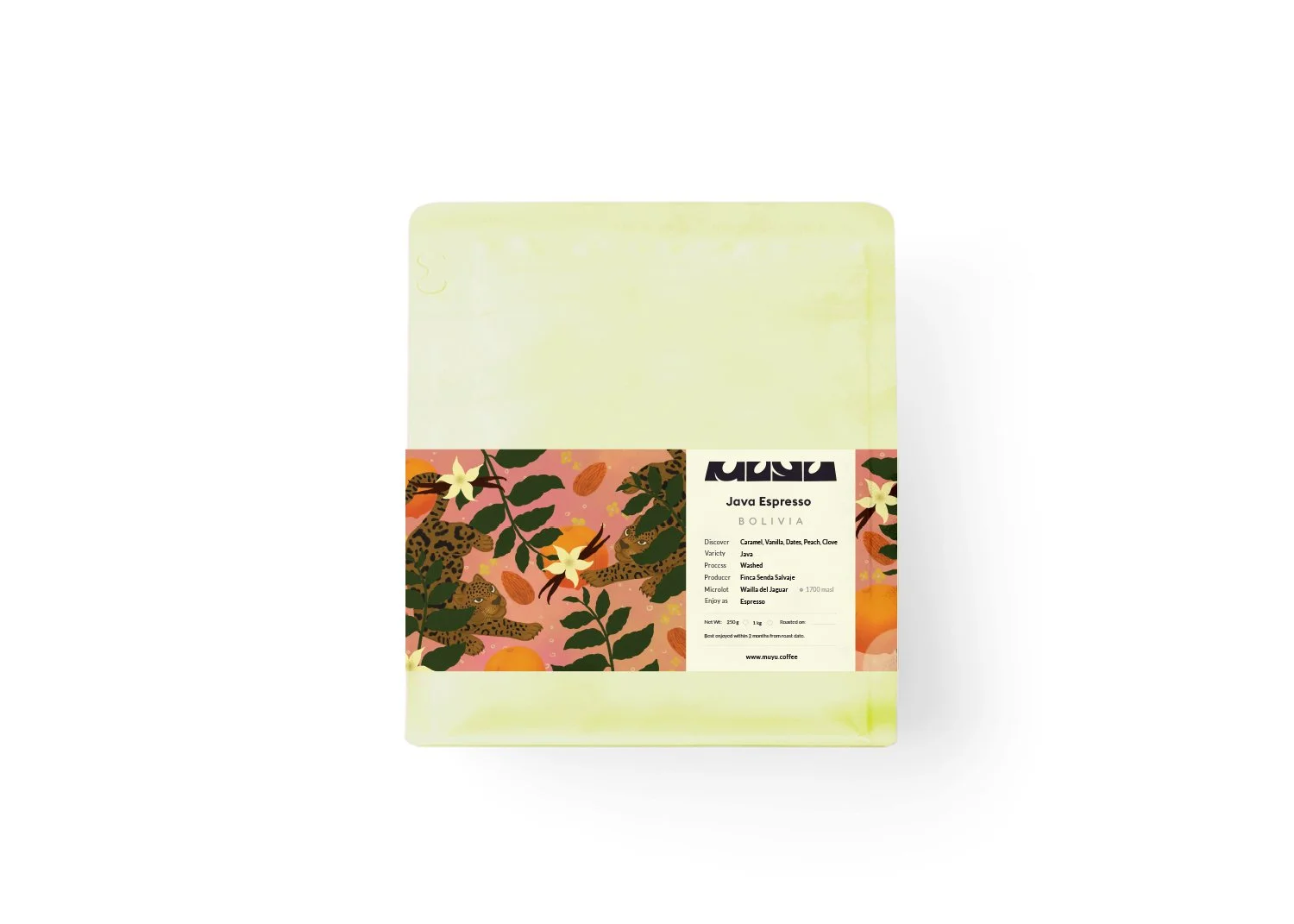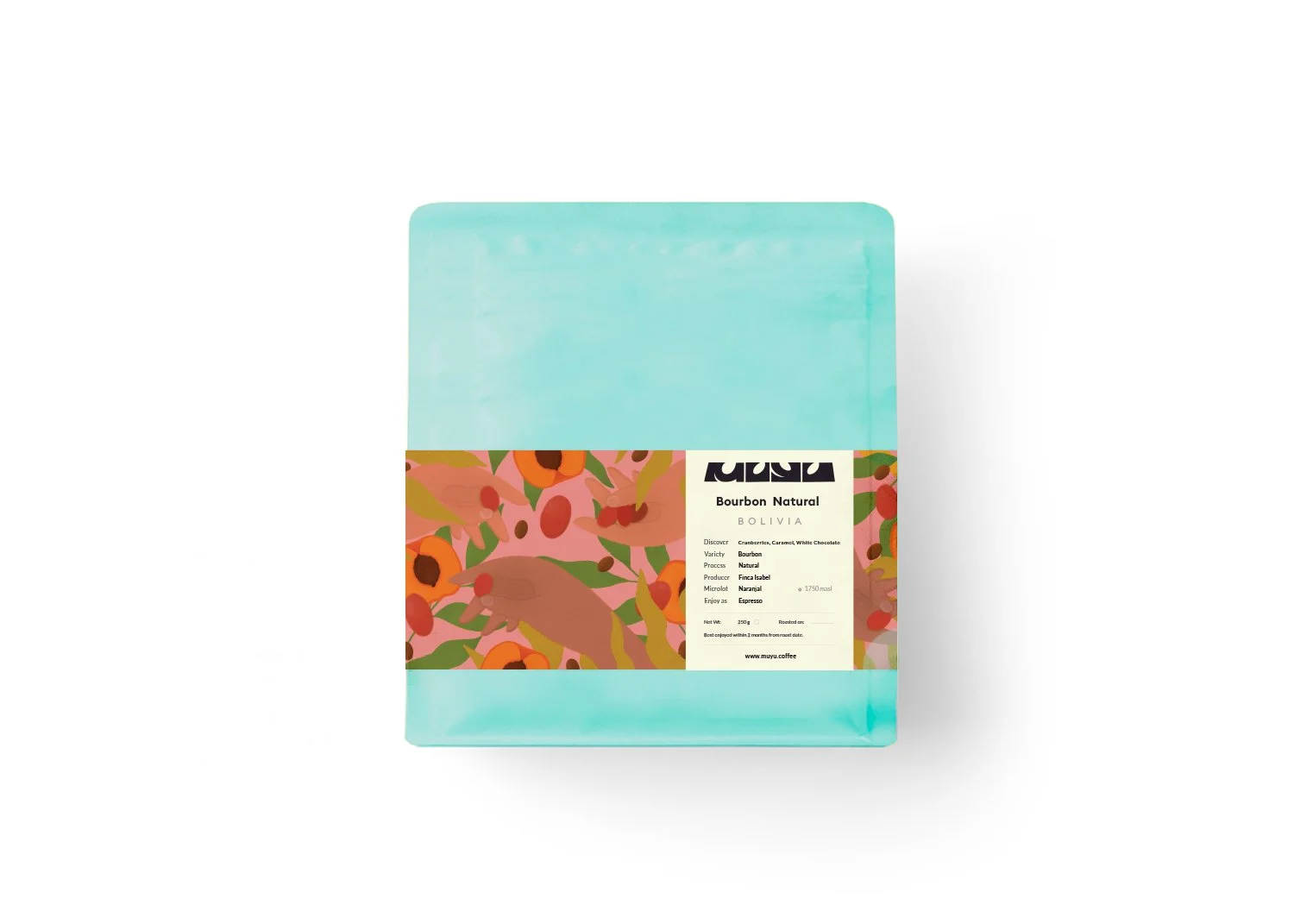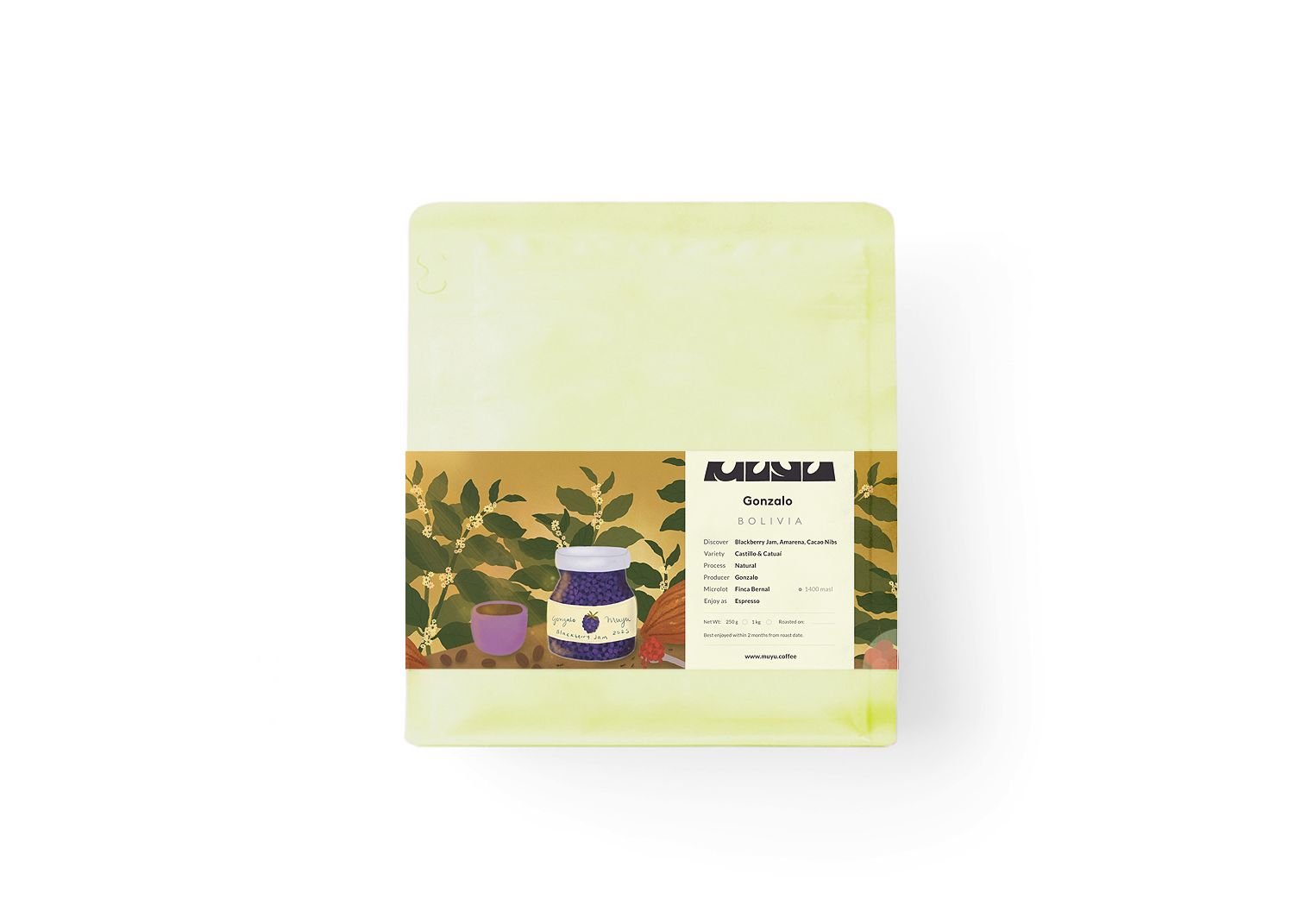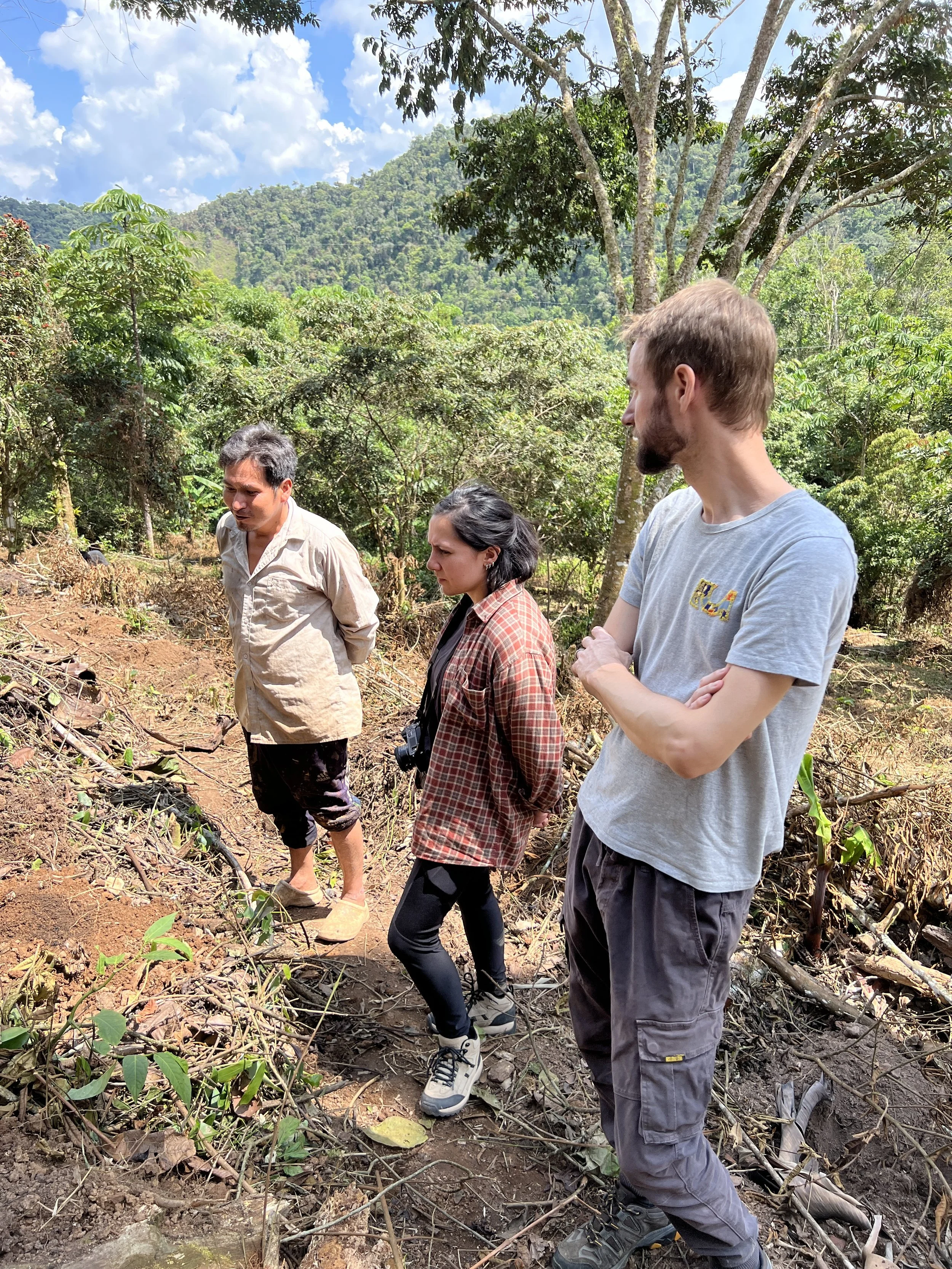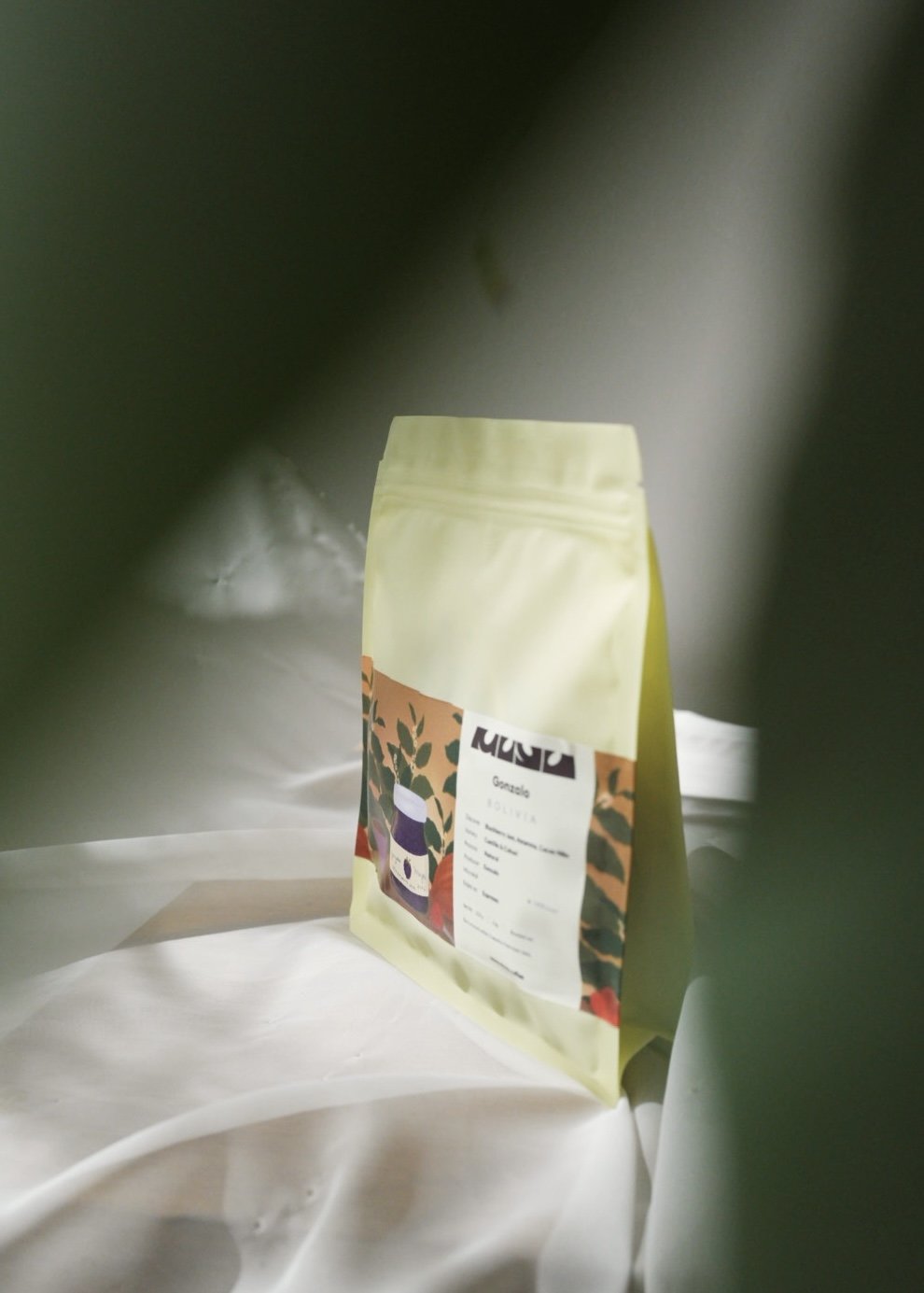-
With a standard 9 bar espresso machines, don’t go crazy. This is an easily dialed in bean: 16-18 grams in, 32-36 grams out in 25-30 seconds, so your standard 2:1 ratio for espresso to get a nice balanced, vibrant cup with a pleasant, long lasting aftertaste, while keeping it sweet with a lower brew temp set at around 90-91 degrees (slightly higher if your machine has a more drastic fall in temperature while pulling shots).
Living in a municipality with harder tap water? Don’t underestimate the effect of water on the flavour of your coffee! Make sure to filter it down to under 80 ppm when brewing coffee. We recommend the BWT Magnesium Mineralised Water filters for best results.
-
Variety: Java
Post harvest processing: Washed
Producer: Carmelo & Deisy (Finca Senda Salvaje)
Location: Loa, Caranavi Province, Bolivia
Elevation: 1750 maslNet weight: 250 grams or 1 Kg whole beans
Roasted for: Espresso -
This is the first time we sourced the Java variety from Deysi and Carmelo. When we first visited them in 2021, this lot just went into production so it was on our radar for a while now but didn’t hit our interest on the cupping table the last few years. With the building of new greenhouses to dry the coffee, we could definitively notice a jump in quality and the coffee convinced us with interesting, clear and well formed tasting notes that are particularly enjoyable as espresso.
Java is one of the newer varieties gaining ground in Bolivia and while cup quality can be all over the place depending on terroir and producer, farmers like it as it is easy to harvest. Two of the main challenges for farmers today are climate change - more specifically messing up the maturation window of the coffee plants - and the difficulty of finding coffee pickers, the hardest job in the coffee supply chain. The Java variety has a very uniform maturation process, thus allowing farmers to pick the cherries in only 2 passes, compared to other varieties that require up to 8. Having such a variety in their mix, helps them manage the pickers on their other lots.
While spending time at origin earlier this year, one of the goals was to improve our sample roasting to give each lot the best opportunity to shine in its own way. Roasting this variety is quite tricky: too light and bitter herbals will be prominent, too dark and sharp spices might overpower the rest. Just in the middle there is a small window in which both are absent, giving the coffee a sweet forward taste. We tested this at origin on our sample roaster and could recreate it here on our production roaster, giving the cup its tasty flavor profile.
-
Sourcing directly at origin from small farmers, we are fully aware of the hard work that goes into the quality product we buy and the challenges their families face to earn their fragile livelihood. In this regard, coffee producing communities in Bolivia face additional challenges, due to the lack of infrastructure, financial support and difficult access to international freight routes. To fairly balance the relationship between roaster and producer we are price takers and as part of our long term commitment to a financially and environmentally sustainable coffee production in Bolivia, we factor these realities into the pricing.
For this 80Kg batch of specialty grade coffee, Carmelo and Deysi received 12,11 USD/Kg.

